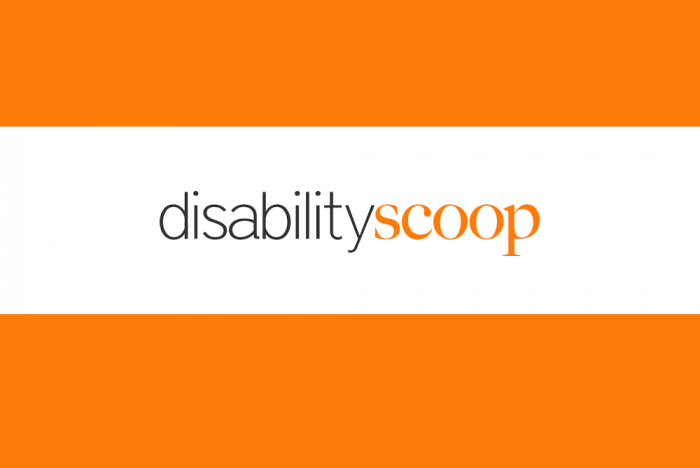congress
Congress’s Plans to Cut Medicaid Spending: Where We Are, What It Means
The Republican-controlled U.S. House adopted a federal budget resolution last week that instructs the House Energy and Commerce Committee, which has jurisdiction over Medicaid, to identify at least $800 billion in mandatory spending cuts during the next 10 years. The resolution is now in the GOP-controlled U.S. Senate.
Medicaid, which is jointly funded by states and the federal government through a federal matching program with no cap, is seen as a prime target for cuts, as it is one of the largest federal programs at a cost of more than $600 billion a year. Approximately 70 million people in the United States receive Medicaid benefits, with about 3 million — including 1.2 million children — of those in Pennsylvania. While officially the federal government did not name Medicaid as the target, there are virtually no other areas to turn to in order to generate such spending cuts.
Proposals being considered in Congress to cut Medicaid are estimated to cost Pennsylvania as much as $2 billion a year. These cuts will inevitably result in:
- Fewer insured Pennsylvanians;
- Fewer covered services for those who remain insured;
- Lower reimbursement rates paid to providers;
- Increases in uncompensated care; and
- Higher healthcare costs for those who are insured.
In addition to broad, negative consequences, each segment of the human services sector will be affected.
Behavioral Health
Medicaid is the largest payer of behavioral healthcare services in the United States, where nearly 40 percent of non-elderly adult Medicaid beneficiaries have a mental health or substance use disorder. Additionally, Medicaid is an essential revenue source for behavioral healthcare organizations. With the potential of fewer covered individuals and lower reimbursement rates, access will be squeezed, with existing providers less incentivized to accept Medicaid patients.
These potential cuts come on the heels of a compromised post-public health emergency unwinding of Medicaid, in which Pennsylvania’s actuarial analysis for the behavioral health capitation was severely underestimated. The eventual Medicaid rolls included more individuals with acute and chronic conditions, resulting in higher levels of care and services. Despite mid-year adjustments to the HealthChoices’s primary contractors, Pennsylvania will start the new fiscal year with the need to increase its BH Medicaid capitation by nearly $640 million.
Intellectual and Developmental Disabilities
Medicaid is the primary funding source for IDD services. If the proposed multi-billion dollar funding cuts occur, Pennsylvania’s intellectual disability system will face serious consequences, including service reductions, longer waitlists, and limited access to essential care. Providers already under strain may have to discharge individuals from community-based services, potentially returning them to institutional settings and undoing decades of progress towards independence and inclusion.
Pediatric Rehabilitation
Medicaid is a key funding source for healthcare and rehabilitation services for infants, children, and adolescents living with disabilities and medical complexity. Even for families with a private primary insurance, Medicaid as a secondary insurance fills in the gaps in covered care. Children with disabilities, regardless of household income, are Medicaid eligible to offset the high costs of care. Medicaid cuts will negatively impact the most vulnerable in our state: children with disabilities and special health needs.
Early Intervention
Medicaid is a supplemental funding source for Early Intervention services in Pennsylvania. All Pennsylvanian families currently enjoy access to these crucial home- and community-based services with no cost-share. Cuts in funding to this program may cause tighter eligibility requirements or cost-shares for families, ultimately decreasing access to essential services.
How the Cuts Might Be Done
Work Requirements
At this point, work requirements appear to be one of the most likely paths to Medicaid cuts.
According to the Pennsylvania Health Access Network (PHAN), approximately 1 million adults in Pennsylvania would be subject to the work requirement.
Medicaid work requirements would require certain Medicaid enrollees to work, look for work, or conduct another qualifying activity (e.g., education, caretaking) as a condition of receiving health insurance. As part of such a requirement, all working age Medicaid enrollees may be required on a monthly basis to report their work or verify their eligibility for an exemption because they are in school or a job training program, caring for others, or disabled/in treatment. Failure to do so would result in them losing Medicaid coverage.
On the surface, increasing support for work requirements is understandable. Able-bodied citizens on Medicaid who can work, should work. What is not being discussed is the fact that most of these individuals are already working but at an income that still qualifies them for Medicaid. Further, studies from states that have attempted to implement a Medicaid work requirement show that the cost to the state to implement and administer such a requirement is in the tens of millions of dollars.
If work requirements become a reality, advocates must lobby for waivers for special populations.
Federal Medical Assistance Percentage (FMAP)
At this point, according to Speaker of the U.S. House Mike Johnson, FMAP (as well as per-capita caps, see below) are not a consideration for reducing Medicaid spending.
Each state’s FMAP determines its federal share of Medicaid funding. FMAP is a formula that uses the state’s most recent three-year average per capita income data to provide higher matching rates to states with lower per capita incomes relative to the national average. FMAPs have a statutory minimum of 50 percent and a maximum of 83 percent.
In Pennsylvania, 56 percent of Medicaid costs are paid with federal dollars, leaving Pennsylvania to cover the balance.
Under the Affordable Care Act’s Medicaid Expansion, the FMAP for what became the newly eligible population — mostly low wage workers who do not have coverage through an employer, disabled workers, caregivers to children or elderly family members, and students — is fixed at 90 percent federal funding, with the commonwealth paying for the balance.
Per Capita Caps
A per capita cap funding arrangement sets an upper limit on federal payments per Medicaid enrollee in each eligibility group. In an aggregated cap (also called a capped allotment) approach, states receive federal matching funds up to a determined maximum. If the cap is exceeded, the state bears 100 percent of that cost with no federal match.
Resources
There are many resources continually being developed and distributed. These include ways to take immediate action with Congress. The following are some of the most relevant to our membership.
- ANCOR Action Alert
- Kaiser Family Foundation Pennsylvania Medicaid Fact Sheet
- Legal Action Center/Coalition for Whole Health Protect Medicaid Report
- National Association for Behavioral Healthcare: Medicaid Policy Proposals Analysis
- National Council for Mental Wellbeing Take Action
- Pennsylvania Health Access Network Medicaid Resource, Including Congressional District Fact Sheets
Next Steps
RCPA will continue to closely monitor the issue. As Congress’s next steps become clearer, we will work with our partners, including you, to develop and execute strategies to stop Medicaid cuts or minimize the negative effects.
Contact your respective RCPA Policy Director with questions.
Outreach to Your Members of Congress is Needed: A Message From ANCOR
Dear ANCOR Members,
Next week, some Members of Congress will be back in their districts, making it the perfect time to meet with them and urge them to protect Medicaid funding for home and community-based services (HCBS).
The newly released House budget framework calls for 1.5 trillion in cuts over ten years and directs the House committee with jurisdiction over Medicaid to cut at least $880 billion in spending. While the details have not yet been finalized, these reductions would likely result in deep cuts to Medicaid funding. Even if proposals do not specifically target funding for I/DD services, the resulting pressure on state budgets from Medicaid cuts creates an elevated risk of further limits and cuts to services for individuals with I/DD. In-district meetings and site visits are some of the most effective ways to educate lawmakers and their staff on how these cuts would harm people with intellectual and developmental disabilities (I/DD), providers, and families.
To help you prepare, we’ve put together key advocacy resources, including:
- Medicaid Cuts Fact Sheet – Key talking points on how federal Medicaid cuts shift costs to states and harm disability services.
- ANCOR Medicaid Resource Center – Data and tools to support your advocacy efforts.
- In-District Meeting & Site Visit Tool – Tips, sample meeting requests, and scripts for engaging your lawmakers.
Why Your Action Matters:
Studies show that constituent messages are the most effective way to influence lawmakers. When they see firsthand the impact of Medicaid-funded services in their communities, they are far more likely to protect funding.
Take this opportunity to reach out to your Members of Congress while they’re home next week or check their website for an email list signup to make sure you don’t miss any opportunities to engage while they are home — let’s make sure they understand why Medicaid funding must be protected.
Thank you for your advocacy.
MedPAC Vote Finalizes Recommended IRF Payment Cut

The Medicare Payment Advisory Commission (MedPAC) held their regular public meeting on January 16 – 17, 2025. During one of their presentations, “Assessing Payment Adequacy and Updating Payments: Skilled Nursing Facility Services; Home Health Agency Services; Inpatient Rehabilitation Facility Services; Outpatient Dialysis Services; and Hospice Services,” there was a draft recommendation specific to inpatient rehabilitation facilities (IRF). The draft recommendation was for fiscal year 2026 and noted that Congress should reduce the 2025 Medicare base payment rate by 7 percent. The PowerPoint presentation is available here.
During this public meeting, MedPAC voted to finalize this recommended payment reduction to fiscal year 2026 IRF Prospective Payment System (PPS) payments. Both AMRPA and other national hospital stakeholders, on behalf of IRFs, strongly opposed this proposed payment cut (prior to the public meeting). However, MedPAC advanced the recommended cut with limited discussion about the potential impacts on patient access and IRF operations.
MedPAC’s recommendations do require Congressional action. As a result, advocacy will be planned to continue to voice concerns with this recommendation. Members will be kept apprised of any upcoming changes.
DisabilityScoop: Congress Authorizes Nearly $2 Billion For Autism
Congress Passes American Relief Act: Medicare Telehealth Flexibilities Extended to March 2025
On December 21, President Biden signed into law the 2025 American Relief Act, a stopgap funding bill passed by Congress on December 20 that funds the federal government through March 14, 2025, and includes over $110 billion for disaster relief.
The bill extends certain Medicare telehealth flexibilities through March 31, 2025, under Section 3207, including the six-month in-person requirement for mental health services, the expanded originating sites, and coverage of audio-only services.
The bill also extends funding for several expiring health care programs through March 31, 2025, including the National Health Service Corps at $85 million and the Teaching Health Center Graduate Medical Education Program at $43 million, both under Section 3101.
In addition, the stopgap bill delays scheduled reductions to the Medicaid Disproportionate Share Hospitals allotments, which are currently set to result in a total reduction of $32 billion between 2025 and 2027. Under Section 3401, the bill delays these cuts through April 1, 2025.
You can read the bill text and a summary of the health care provisions.
TBI Act Included in Congress’s Proposed Year-End Package: Contact Legislators to Support
RCPA received notification today from the Brain Injury Association of America (BIAA) and the National Association of State Head Injury Administrators (NASHIA) that the Traumatic Brain Injury (TBI) Act was included in Congress’s proposed year-end package. Key provisions included in this bill include:
Administration for Community Living (ACL)
- Reauthorizes the State Partnership Program and Protection & Advocacy Program.
- Allows grants to be used to support systems of care for people of any type of acquired brain injury.
- Allows a state to request a waiver of the match requirement if they cannot meet the match to carry out the grant purposes. The match decrease can only be for that fiscal year, and states must maintain at least the match that they have had during the previous fiscal year.
- Requires ACL in awarding State Partnership Program grants to take into consideration populations that may be at higher risk for brain injury.
Centers for Disease Control and Prevention (CDC)
- Reauthorizes the CDC’s TBI Programs, including the National Concussion Surveillance System.
- Renames the TBI Program to honor Congressman Bill Pascrell.
- Requires an examination of brain injury as a chronic condition that may impact someone across the lifespan. CDC plans to accomplish this through work with the National Academies of Science, Engineering, and Medicine.
- Requires CDC to review those who may have higher impact of brain injury, including due to their occupation and from interpersonal violence.
RCPA encourages providers, staff, and families to reach out to their members of Congress through email or phone call by COB Thursday, December 19, 2024. The message can be simple. For example:
As a constituent, I encourage you to support the year-end continuing resolution, which includes the TBI Act. The TBI Act is pivotal to create systems of care for people of brain injury. [Feel free to share any personal impact] Thank you for your support of this important bill.
In Pennsylvania, our current state Senators are:
Casey, Robert P., Jr. and
Fetterman, John
Additional information for contacting your Senators can be found here.
Health Component of CR: Medicaid Buy-In Bill Included
Now Is the Time to Take Action on the SCO Bill
A message from our national partner ANCOR:
As you know, Congress is winding down, and we only have a few more opportunities to pass the legislation to help create a standard occupational classification for DSPs. We are so close to getting this bill across the finish line–it has passed in the Senate and has also passed in House Education and Workforce Committee. The final stop is passage in the full House of Representatives.
Please help us in reaching out to your Representative and ask them to support the Recognizing the Role of Direct Support Professionals. You can use our action alert to send that message.
We especially ask that you reach out if you have any connections with House leadership offices: Speaker Johnson, Leader Jeffries, Rep. Scalise, or Rep. Emmer. The message to those offices is to put the bill on the calendar for a vote next week.
Thank you so much for all you do and for your strong advocacy efforts. If you have any questions, please do not hesitate to reach out.
Thanks!
Elise Aguilar
Senior Director of Federal Relations
American Network of Community Options and Resources
Alexandria, VA
(703) 535-7850
Biden Signs Mental Health and SUD Funding Bill Into Law

President Biden signed the Further Consolidated Appropriations Act, 2024 into law on March 23. This Act includes the Labor, Health and Human Services, Education, and Related Agencies Appropriations Act, 2024. Notable FY 2024 funding totals for mental health and substance use include:
- $385 million for Certified Community Behavioral Health Clinics (level with FY 2023);
- $986,532,000 for the Mental Health Block Grant, which includes maintaining the existing 5% of the total set aside for evidence-based crisis care programs that address the needs of individuals with serious mental illnesses, children with serious emotional disturbances, or individuals experiencing a mental health crisis (level with FY 2023);
- $153 million for the Behavioral Health Workforce Education and Training Program, including $40 million for the Substance Use Disorder Treatment and Recovery Loan Repayment Program (level with FY 2023);
- $1,575,000,000 for State Opioid Response Grants (level with FY 2023); and
- $1,928,879,000 for Substance Use Prevention, Treatment, and Recovery Services Block Grants (level with FY 2023).
Additionally, key provisions of the Act include an $18 million increase in funding for the 988 Suicide & Crisis Lifeline and a $1 million increase for the Primary and Behavioral Health Care Integration grant technical assistance program. There is also a $75 million increase for mental health research conducted by the National Institute of Mental Health. Various mental health and substance use programs maintained funding levels similar to those of FY 2023. For more information, you can access the full explanatory text as well as the comparative highlights table.
If you have any questions, please contact RCPA Policy Director Jim Sharp.













